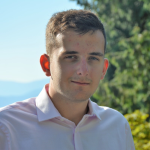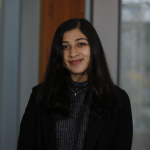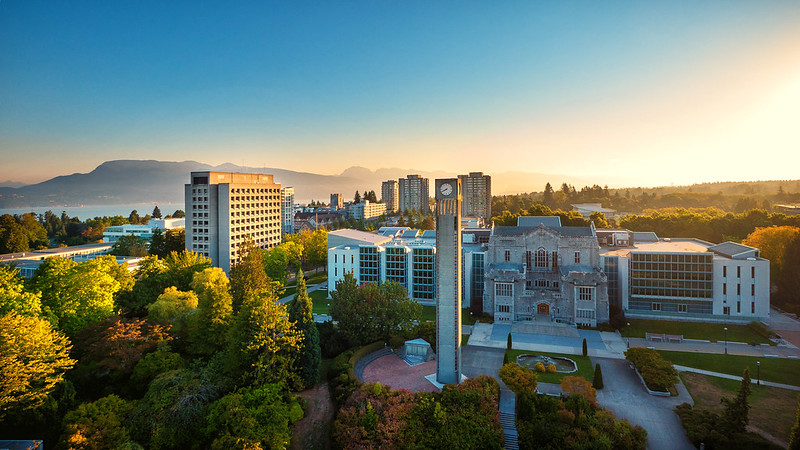The Department of Central, Eastern and Northern European Studies (CENES) is excited to announce our three new program assistants and one new project assistant, who will work with the department leadership team on enhancing undergraduate programming and intellectual life across our German Studies, Scandinavian Studies and Slavic Studies programs.
Michal Ekiert
What inspired you to join the CENES Department as a program assistant for Slavic Studies?

I’m Michal, 4th year student majoring in International Relations in the dual BA program with Sciences Po Paris. Although my studies centred around the Transatlantic politics and global history, besides mastering French, I decided to join the CENES Department for couple reasons. Firstly, I was born and spent 19 years of my life in Poland, in Przemyśl, right at the Polish-Ukrainian border. My ancestors were Poles, Austrians, Ukrainians, Czechs and other Central Europeans. The CENES Department speaks to me, for it provides a space and voice to the Germanic, Slavonic and Nordic linguistic and cultural communities. It is important that the cultural zones “east of France” remain represented, and strongly vibrant at UBC, and that a broad understanding of what European culture is continues to be transmitted to the wider UBC community.
What are you looking forward to doing in your new position?
I am looking forward to organizing CENES Slavic Tea and other cyclical and one-off gatherings, socials and events of the Slavic Program, as well as intensifying its social media presence on campus. I also am looking forward to helping the Slavonic-speaking, SLAV/CENS/RUSS/POLS students, and anybody else interested in feeling closer to what unites us, despite the gravity of conflicts that tear apart this fascinating cultural region.
What excites you most about Slavic Studies?
I think the current geopolitical period will result in increasing interest in the Slavic world, Central, Southern and Eastern Europe. It is also a challenging period for the scholars of the area. But it is also an interesting time to teach Russian studies in a captivating way by building constructively on the current situation, and educating that “Slavic” is not Russian only. By expanding the attention onto the Ukrainian, Polish, Czecho-Slovak, Serbo-Croat, and rest of the Slavic world, this shows the plurality of the region, which will be important. After all, Old Church Slavonic, the Slavs’ Latin, originated from around Thessaloniki in present-day Greece.
If I could end this with a little Canadiana note, I would also like to recommend a short film from 1944’s Manitoba, Polish Dance.
Melissa Phua
What inspired you to join the CENES Department as a program assistant for German Studies?

I’m interested in the German language, and I really enjoy learning it, especially here at UBC! I love all the German classes I’ve taken here, so I wanted to help promote German courses to the greater campus and grow the German Studies undergraduate community. Being a CENES undergraduate program assistant for German Studies is the perfect opportunity to do so!
What are you looking forward to doing in your new position?
I’m looking forward to promoting courses offered in German Studies and encouraging more students to sign up for them. So far, I’ve been promoting courses on the UBC German Studies Instagram page. I really enjoy being able to exercise my creativity while designing posters for Instagram! Apart from that, I’m also looking forward to organizing events to promote learning German, or just language learning in general.
What excites you most about German Studies?
Learning more about the culture and history, as well as the perspectives of people with migration backgrounds in German-speaking countries.
Sanya Malik
What inspired you to join the CENES Department as a project assistant?

The uniqueness of the programs and opportunity to help develop those programs is what mainly inspired me to join CENES. The opportunities are unlike any other in the UBC Work Learn program.
What are you looking forward to doing in your new position?
I am looking forward to researching diverse topics related to teaching and learning in collaboration with the Head, Dr. David Gramling. These are things that I have come across before and have never gotten a chance to look into, which is exciting.
What excites you most about Central, Eastern and Northern European Studies?
The diversity in the department and the broad aspect of it is the most exciting to me. There is so much going on, in the best way.
Delaney Westby
What inspired you to join the CENES Department as a program assistant for Scandinavian Studies?

Last year, I joined one Swedish course because of my interest in language. I quickly became involved in other courses and extracurriculars in the Scandinavian Studies program because of all the amazing students and professors I met. I have loved interacting with everyone in the CENES Department, so I wanted the opportunity to work in the department and give back to it, since I have enjoyed so many CENES courses and met so many good friends through them.
What are you looking forward to doing in your new position?
I’m excited to expand the reach of the CENES Department, hopefully by collaborating with other departments at UBC. I think we have a lot of really interesting courses and activities to offer for students in all faculties. I’m also looking forward to working more closely with the faculty this year.
What excites you most about Scandinavian Studies?
I really enjoy the literature courses that the Scandinavian Studies program offers. They are wonderful spaces for discussion and they cover an incredible range of subjects over a single term. For example, I love folklore and mythical creatures, so last year in SCAN 332A I was especially excited to learn about the folklore of different cultures in the Nordic region and the themes that recur across different stories.


